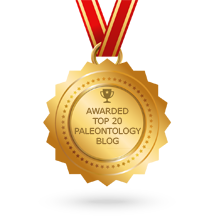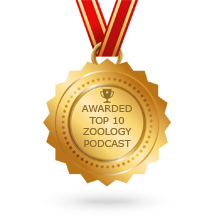Welcome
After many days of hard work, we finally have the site up and running!
Firstly, we would like to thank those people who have supported us from the very beginning by joining our mailing list and our social media groups, and providing encouragement during the development of this project. Furthermore, none of this would have been possible without the help of The Paleontological Society.
So what’s Palaeocast all about?
Palaeontology has an aura of mystery which fascinates people of all ages and backgrounds. It transcends and encompasses all the mainstream sciences, bringing them together in order to tell an amazing story; the history of life on Earth. We want to share that story with you.
Much palaeontological research is funded by public taxes; therefore we believe it’s important that findings are openly communicated back to those who have supported it. Unfortunately, accessing scientific research can be fraught with difficulties as they can pose a barriers, both in terms of the language used and the ‘paywalls’ that can prevent access to those without expensive subscriptions. Most people rely on second-hand sources such as news reports, popular books or documentaries; however, detail and accuracy can often be lost in the transition from the original articles. Fortunately, because of the internet, we now live in a time where the digital communication of scientific research is easier than ever. Palaeontologists have largely embraced this new digital age, and now there is a small cohort of scientists who blog about their research, as well as dedicated open access journals such as Palaeontologia Electronica.
Palaeocast takes the next digital step towards changing the way research is communicated by bringing researchers directly to you, placing you in the seat of the interviewer. We want them to tell the stories of when, how and why in their own voice, without being paraphrased or having relevant information cut. We also want to hear the stories of all their sore thumbs, water-logged digs, animal encounters, and crashed computers, absent in papers but nonetheless as much a part of research processes as the final results.
All in all, our aim is to take you on a journey through the world of Palaeontology, as told by the experts, revealing the stories behind the science which are so often lost in translation.
Who are we?
Dave Marshall:
I am 27 years old, with a BSc. in Geology and a MSc. in Palaeobiology. I’ve spent the past four years working in the oil industry, but my main area of interest is in Paleozoic aquatic chelicerates. You’ll normally find me at a computer, but I can’t be happier than when I’m in the field with a hammer and the chance of finding a sea scorpion!
Even as a palaeontologist, the subject never fails to amaze me; there is always something new I learn every day, something that changes the way I view the world around me. And when I think I’ve got things sussed, a new find somewhere will just blow everything I thought I knew right out of the water. That’s the addiction for me, we’re always chasing the unknown. For a subject dealing in dead animals, it’s always so fresh!
Jon Tennant:
Hey! During a degree in Geology, my fascination with dead things was re-awakened, and I decided to take a second Masters at the Natural History Museum in London to learn about the applied biological side of Palaeontology, whilst volunteering in their incredible dinosaur collections! I took some ‘time out’ after this, diversifying into microfossils, taphonomy, and functional ecology while volunteering at Leicester University. Now, I’m taking tentative steps into the world of policy at the Geological Society of London, to try and develop the role that geoscience can play in government.
From September 2012, I’ll be starting a PhD investigating whether there is a ‘hidden’ mass extinction at the Jurassic-Cretaceous boundary in terrestrial vertebrates, as part of a larger ongoing project into tetrapod diversity and evolution through time. My hope is that we can use this information as a guide to understanding how modern vertebrates will respond to changing ecological and environmental pressures, particularly in squamates and crocodylomorphs.
Why Palaeo? What could be a better job than doing what you’ve spent your life loving, and at the same time contributing to the global pot of knowledge? Palaeontology has this aura of mystery, the unknown, the long lost, surrounding it, and I feel part of our role as researchers is to take the visceral and transform it into something tangible. I also have a blog at green tea and velociraptors, and tweet as @protohedgehog.
Joe Keating:
I’m 24, originally from Brighton, UK, and have been interested in all things palaeontology since I could pronounce the word. I completed a degree in Geology with Palaeobiology at the University of Leicester back in 2011. Since then I have spent a year in the oil industry working as a micropalaeontologist. I’m just about to start a PhD at the University of Bristol researching the evolution of the vertebrate skeleton. Through this research I hope to gain a greater understanding of the essential body-plan that we share with all vertebrates and the evolutionary innovations that lead to vertebrate success. You can find my blog at Evolutionary Palaeobiology. I also tweet @evopalaeo.
For me, palaeontology is a detective story. Whether you are trying to reconstruct past environmental changes using microfossils, reveal how body parts were assembled gradually over evolutionary time or understand how and why extinction events take place. Palaeontologists, like any detective, use available clues to tell the story. I hope that, through Palaeocast, we’ll be able to capture some of that ‘detective story’ essence which makes palaeontology such an exciting and interesting field to be a part of.
For our first episodes we’ve managed to get a topical interview with Dr. Leila Battison who’s currently working at NASA’s Ames Research Center on the ‘Earliest fossils and the hunt for extraterrestrial life‘ and an interview on Isotelus rex with Dave Rudkin from the Royal Ontario Museum, Canada. One of the objectives of Palaeocast is to show just how diverse the field really is and we believe these interviews, as well as our next few episodes, are all good examples of this.
We would really value your input, so please head over to our forum where you can discuss each episode with us and our other listeners. There are also areas set up for show requests and discussions of all things palaeontological. We look forward to hearing from you all!





















